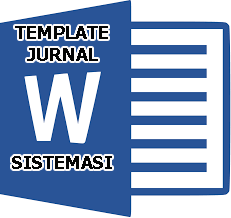Implementation of E-Govqual and IPA Models in Evaluating the Quality of Online Licensing System Services
Abstract
Full Text:
PDFReferences
S. Zulfah, “Pengaruh Perkembangan Teknologi Informasi Lingkungan (Studi Kasus Kelurahan Siti Rejo I Medan),” Bul. Utama Tek., vol. 13, no. 2, p. 2, 2018, [Online]. Available: https://jurnal.uisu.ac.id/index.php/but/article/view/284
K. Ilmu and D. Kurniansyah, “Jurnal Politikom Indonesiana: Faktor-Faktor yang Mempengaruhi Pengembangan Teknologi Informasi Pemerintahan Desa (E-Gov) di Indonesia,” Ilmu Polit. dan Ilmu Komun., vol. 5, no. 1, pp. 155–174, 2020, [Online]. Available: https://journal.unsika.ac.id/index.php/politikomindonesianahttps://journal.unsika.ac.id/index.php/politikomindonesiana
Warjiyono, “Nalisis Implementasi E-Government Pemerintah Daerah Kab. Tegal Berdasarkan Framework Deloitte Dan Inpres No. 3 Tahun 2003,” vol. I, no. 1, pp. 22–31, 2013.
X. Papadomichelaki and G. Mentzas, “E-GovQual: A multiple-item scale for assessing e-government service quality,” Gov. Inf. Q., vol. 29, no. 1, pp. 98–109, 2012, doi: 10.1016/j.giq.2011.08.011.
J. A. Martilla and J. C. James, “Importance-performance analysis,” 1986.
A. R. Dani, D. Krisbiantoro, and A. Azis, “Evaluasi Kualitas Layanan Website SMA Negeri 1 Wangon Menggunakan Metode E- Govqual dan Importance Performance Analysis,” J. Tekno Kompak, vol. 16, no. 2, pp. 151–162, 2020, [Online]. Available: https://ejurnal.teknokrat.ac.id/index.php/teknokompak/article/view/1953%0Ahttps://ejurnal.teknokrat.ac.id/index.php/teknokompak/article/download/1953/953
T. M. Tamtelahitu, “Analisa Kualitas Website Info Covid-19 Provinsi Maluku Menggunakan Metode E-Govqual Dan Importance Performance Analysis,” JIPI (Jurnal Ilm. Penelit. dan Pembelajaran Inform., vol. 7, no. 2, pp. 574–582, 2022, doi: 10.29100/jipi.v7i2.2262.
G. S. Utomo, K. H. Titisari, and A. Wijayanti, “Pengaruh Kualitas E-Government Terhadap Kepuasan Pengguna E-Filing: Studi Kasus Wajib Pajak Di Surakarta,” J. Akunt. DAN BISNIS J. Progr. Stud. Akunt., vol. 6, no. 1, pp. 13–21, 2020, doi: 10.31289/jab.v6i1.2752.
M. S. Wong, N. Hideki, and P. George, “Penggunaan Importance-Performance Analysis (IPA) pada Mengevaluasi Layanan E-government Jepang,” J. Theor. Appl. Electron. Commer. Res., vol. 6, no. 2, pp. 17–30, 2011, doi: 10.4067/S0718-18762011000200003.
Algifari, Mengukur Kualitas Layanan dengan Indekss Kepuasan, Metode Importance Performnace Analysis (IPA) dan Model Kano, Revisi. Yogyakarta: FEBP, 2016.
Engel, “Metode Penelitian Deskriptif Kuantitatif,” Pap. Knowl. . Towar. a Media Hist. Doc., pp. 38–46, 2019.
A. D. Erliawan, “Pengaruh Motivasi Terhadap Kinerja Pegawai Melalui Disiplin Kerja Pada Pemerintah Kabupaten Jombang,” SIBATIK J. J. Ilm. Bid. …, vol. 1, no. 8, pp. 1331–1342, 2022, [Online]. Available: https://publish.ojs-indonesia.com/index.php/SIBATIK/article/view/170
Y. K. Ekasari, “Pencapaian Siswa (Analisis Deskriptif Pada Sma Negeri Di Kabupaten Purwakarta,” Ekon. Dan Bisnis, vol. 2, no. 1, pp. 125–143, 2018, [Online]. Available: http://stieb-perdanamandiri.ac.id/media/Jurnal/2018/10 JURNAL YULIANA EKA.pdf
F. R. Wilujeng, G. D. Rembulan, D. Andreas, and H. Tannady, “Meningkatkan Kepuasan Pelanggan pada Dua Bisnis E-Commerce Terbesar di Indonesia dengan Menggunakan Analisis Servqual dan IPA,” Pros. Semin. Nas. Sains dan Teknol., pp. 1–9, 2019.
A. Wijaya, Metode penelitian menggunakan smart PLS 03. Innosain, 2019. [Online]. Available: https://elibrary.bsi.ac.id/readbook/220111/metode-penelitian-menggunakan-smart-pls-03
imam Ghozali, Teknik dan aplikasi menggunakan program smartPLs 3.2.9 untuk penelitian empiris. Semarang, 2021.
Y. Yulianti, “Gap Analysis Dan Importance Performance Analysis (Ipa) Pada Program Studi Pendidikan Ekonomi,” J. Pendidik. Ekon., vol. 6, no. 2, pp. 122–133, 2017.
DOI: https://doi.org/10.32520/stmsi.v12i3.3149
Article Metrics
Abstract view : 578 timesPDF - 104 times
Refbacks
- There are currently no refbacks.

This work is licensed under a Creative Commons Attribution-ShareAlike 4.0 International License.









